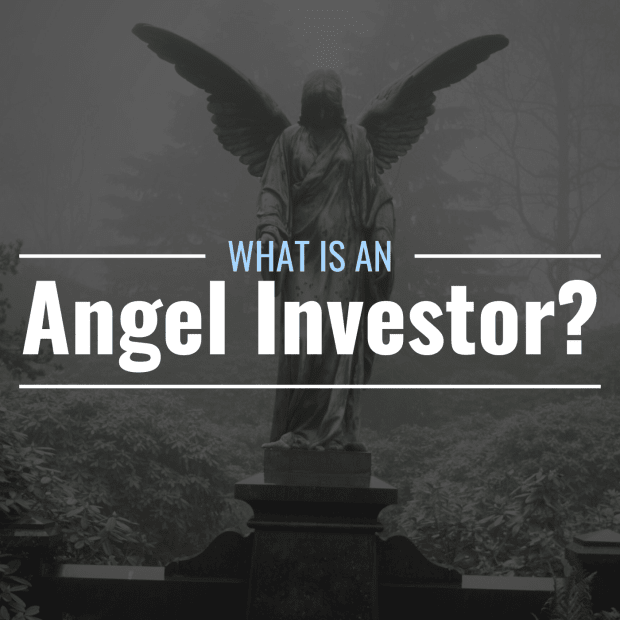Markets
What Is an Angel Investor? Definition, Requirements & Process
Angel investors aren’t exactly like their heavenly namesakes, but they can swoop down from above—at least in a financial sense—and provide emerging companies…


Angel investors aren’t exactly like their heavenly namesakes, but they can swoop down from above—at least in a financial sense—and provide emerging companies with some much-needed cash to grow their businesses.
What Is an Angel Investor in Simple Terms?
An angel investor is usually a wealthy individual who provides financial support for young and potentially profitable businesses. The angel investor (also known as an “angel funder”) does so in exchange for a piece of the company in the form of partial ownership.
The percentage of that ownership depends on the amount of the funding capital the angel investor provides and is negotiated by the angel investor and the principals at the company receiving the funding.
Where Do Angel Investors Come From?
Quite often, an angel investor is either related to someone at the company looking for funding, or they’re close friends or former business partners. They could be doctors, lawyers, accountants, or other professional service owners. It’s also not uncommon for a deep-pocketed angel investor to hear about a potentially profitable young company and contact them to offer financing.
As for the funding support, the money usually comes in the form of a single payment from the angel investor to the receiving company, although periodic payments to keep a young startup rolling are not uncommon.
While a good percentage of angel investments go to technology and healthcare companies, angels can invest in any type of company they favor. The sector of the company receiving angel funding isn’t as important as its profit potential.
How Angel Investing Works
If you’re an executive or the actual founder of a startup company, and you receive an offer from an angel investor, the arrangement usually goes something like this:
- Your angel investor agrees to pay a predetermined amount of funding capital, payable on a specific date by check or electronic deposit. The amount of cash can vary, from several thousand to several million dollars.
- Next, the angel investor is awarded a percentage of the company that receives the angel capital. 10% to 20% is a common ownership percentage, although the numbers can vary. With that percentage of ownership, the angel investor is entitled to a slice of any profits the company makes, a scenario that economists define as an “equity stake.”
- There is a partial ownership timetable baked into the mix with most angel investors angling to sell their share of the company years down the road, when the company is more seasoned and is earning more money. In that case, the angel investor typically waits for a period of three to five years to sell their shares for cash.
- It’s also worth noting that if the company receiving the angel funding goes belly up, that company is not required to pay any of the money back.
Angel Investor vs. Venture Capitalist: What’s the Difference?
An angel investor is not the same thing as a venture capitalist. For starters, venture capitalists invest significantly more money in emerging companies than angel investors do. Typically, venture capitalists invest millions in growth companies, while angel investors sometimes invest $100,000 or less.
The expectations game is different with venture capitalists as well. While angel investors are likely to settle for a 15% or 20% stake in a company, venture capitalists are looking for much more—often up to 30%, 40%, or even 50% of a company in exchange for funding.
Due diligence is another variable. Venture capitalists insist a company open its financial ledgers and go over them with a fine-tooth comb. Formal presentations are often required with venture funders, who invest $25,000 or $50,000 (depending on the deal) just to research and analyze an investment prospect.
That’s not the case with angel investors, who often agree to invest after an informal presentation at dinner or over a beer, and with a handshake cementing the deal.
Advantages of Angel Investing for Business Owners
Angel investing can be a great way for younger companies to get off the ground and has several advantages over other fundraising avenues.
Low Risk
The angel investor is the one carrying the larger risk burden—not the business owner. The angel funder is betting the company will become profitable, and they will make plenty of cash back on the investment. Of course, there is no guarantee of that happening, and the possibility remains the angel investor could lose money if the business is unsuccessful.
Alternative Source of Funding
If you’re a young company with great potential, but you can’t get financing from a traditional funding source like a bank or a venture capital firm, an angel investor can fill the void. As the saying goes in finance, “angels invest where others fear to tread.”
Hands-Off Support
Angel investors offer more flexibility to emerging companies than traditional funding sources. Unlike banks or venture firms, an angel investor is much less likely to issue demands and mandates to a business.
Mentoring
Often, an angel investor is someone deeply-rooted in the business world who can offer valuable advice to a company whose founders and executives may be younger and not as experienced. You can’t put a price on good business advice, and having a seasoned management professional on your side can help your business just as much as financing can.
Disadvantages of Angel Investing for Business Owners
While angel investing certainly has a lot of pros, certain downsides should be considered as well.
Decreased Control of the Company
Business owners who strike a deal with an angel investor, and give up a percentage of their company in doing so, now have a business partner. While most angel investors don’t interfere with the operations of a business it’s funded, they can if they want to—that’s what business partners do. At the very least, you’ll have to answer to your angel about any big company decisions you make.
Loss of Future Profits
When signing an agreement with an angel investor, you’re gaining immediate funding, but you’re giving up profit potential down the road. If you give up 20% of your company and earn $10 million dollars a few years later, $2 million goes to your angel business partner.
Funding Limitations
Venture capitalists and banks are much more likely to come through with more money than an angel investor, even if that money isn’t always easy to obtain. Consequently, if your company needs $5 million and is offered $50,000 by an angel investor, that will not cut it financially.
One-Time Support
Additionally, angel investors are well known to limit their investment dollars to a “one-time” event. Usually, angel investors don’t want to keep digging into their wallets and writing more checks for the same company. For a business owner, that means the money you get from an angel investor is a one-and-done deal and likely won’t be repeated.
Requirements for Becoming an Angel Investor
While there aren’t many limitations to becoming an angel investor, there are some hurdles to clear. An angel investor must meet the U.S. Securities and Exchange Commission’s definition of an accredited investor and is subject to regulatory overview.
To be considered an accredited investor, an individual must have at least $1 million in net worth and earn $200,000 or more annually ($300,000 as a married couple). You can find accredited angel investors online at the Angel Capital Association website.

Wittiest stocks:: Avalo Therapeutics Inc (NASDAQ:AVTX 0.00%), Nokia Corp ADR (NYSE:NOK 0.90%)
There are two main reasons why moving averages are useful in forex trading: moving averages help traders define trend recognize changes in trend. Now well…
Spellbinding stocks: LumiraDx Limited (NASDAQ:LMDX 4.62%), Transocean Ltd (NYSE:RIG -2.67%)
There are two main reasons why moving averages are useful in forex trading: moving averages help traders define trend recognize changes in trend. Now well…
Seducing stocks: Canoo Inc (NASDAQ:GOEV 5.43%), Ginkgo Bioworks Holdings Inc (NYSE:DNA -1.12%)
There are two main reasons why moving averages are useful in forex trading: moving averages help traders define trend recognize changes in trend. Now well…














